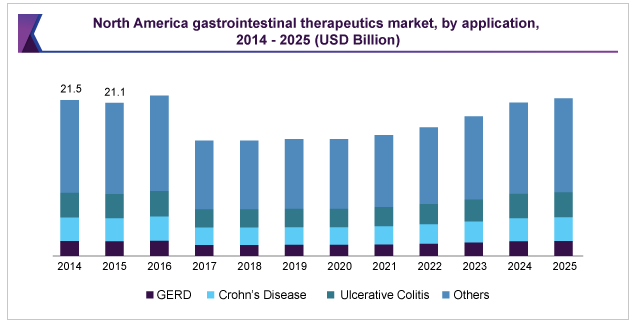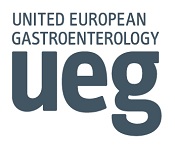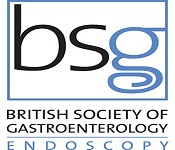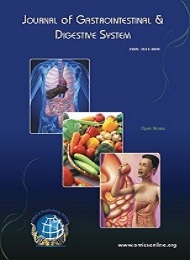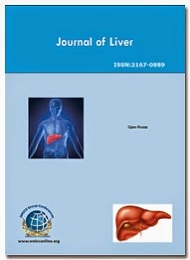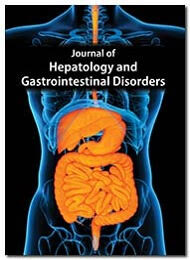Theme: Multidisciplinary Approach and Innovations in Gastroenterology
Gastroenterologists 2019
It’s with great pleasure that we welcome you to the 19th World Gastroenterologists Summit to be held from October 14-15 2019 in Sydney, Australia.
Gastroenterologists 2019 Conference website is attracting 25000+ Gastroenterologists, Hepatologists, Surgeons ranging from Researchers, Academicians and Business professionals, who are working in this professional arena. We provide unique opportunity to our speakers and participants which are not being offered by any other conference committees. Through this the abstracts and research data of our speakers and organizing members getting global visibility that you would be receiving in addition to global networking opportunities before, during and after the conference.
Conference Events
- 3000+ Conferences worldwide in 30+ countries consistently.
- Provides new discoveries and most recent advancements in the important field.
- Participation of skilful volunteers from universal associations
- Internationally logical representations
- Enlightenment for early researchers and understudies
- Perfect arena for worldwide network between professionals and researchers
- Over 25 Million+ Visitors and 20000+ dynamic Visitors for every meeting
Why to attend?
- To update on recent advances, develop a new skill, gain deeper knowledge
- To perpetuate education and promote skill development
- Exposure to other skilled peers and mentors may motivate the Gastro specialists to improve their performance and adopt continuous learning through the course of their careers
- Gain insights into the latest technology in the field of Gastroenterology
- Obtain CME credit hours by attending this conference
- To identify the latest ideas in all the sectors of Gastroenterology
- Engaging and bridging the excellence in therapeutic areas of Gastroenterology
- Networking with skilful associates
- Valuable sessions for the functional companions
Gastroenterologists 2019 establishes mutual interaction and cooperation with scientific researchers in the area of Gastroenterology, Hepatology, laparoscopy, colonoscopy, Bariatric Surgery, Endoscopy, alimentary canal ailments, Endoscopic Retrograde cholangio pancreatography (ERCP), Gastrointestinal Surgery.
Goals
- This conference brings an international communication and collaboration, promote professional interaction and lifelong learning; recognize outstanding contributions of individuals and organizations, encourage scholar researchers to pursue studies and careers in the arena of gastroenterology.
- To bring together Researchers, Doctors, Scientists, Scholars and Students in the areas of Gastroenterology and provides a forum for the dissemination of original research results, new ideas, Research and development
- Networking contacts to provide a means for scientific and industrial exchanges
- To promote scientific and educational activities towards the advancements in the gastro zone
- Boosting the scientific research with the academicians, business delegates and other industrial organizations in the country and throughout the world
- Summarize the new ideas and integrations that may disseminate to common man
- Explore the enhancements that could be accomplished
- Discussing the advancements and achievements in Gastroenterology
Conference Highlights
- Advances in Gastroenterology
- Paediatrics Gastroenterology
- Gastrointestinal Disorder
- Gastrointestinal Diseases during Pregnancy
- Gastrointestinal Oncology
- Gastrointestinal Surgery
- Hepatocellular Carcinoma
- Gastrointestinal Radiology
- Helicobacter Pylori Infection
- Inflammatory Bowel Disease
- Pancreatic Diseases
- Bariatric Surgery
- Gastroesophageal Reflux Malady
- Gastrointestinal Endoscopy
- Gastrointestinal Immunology
- Neurogastroenterology and Motility
Supporting Journals
Journal of Gastrointestinal & Digestive System
Journal of Liver
Journal of Liver: Disease and transplantation
Track 1: Advances in Gastroenterology
Flexible sigmoidoscopy is one of several screening modalities recommended by the US Preventive Services Task Force for colorectal cancer (CRC) screening. However, sigmoidoscopy is less effective in detecting lesions at the right side of the colon than the left side, and right-sided lesions are more common in older women. A study that pooled results from three randomized trials comparing screening by sigmoidoscopy with no screening found that the incidence of CRC at 10 to 12 years was decreased in men but in women, only in those younger than 60 years. Current screening recommendations do not indicate gender-based preferences for screening options.
Track 2: Paediatrics Gastroenterology
Pediatric gastroenterologists treat children from the new born period through the teen years. They choose pediatric care the core of their medical practice, which provides extensive experience specially in the care of infants, children, and teens. Pediatric gastroenterologists provide treatment for the following conditions.
Bleeding from the gastrointestinal tract, Lactose intolerance, Food allergies or intolerances, Severe or complicated gastroesophageal reflux disease (reflux or GERD), Inflammatory bowel disease, bowel syndrome, Liver ailments, Acute or chronic abdominal pain, Vomiting, Chronic constipation, Chronic or severe diarrhea.
Track 3: Gastrointestinal Disorder
Gastrointestinal disorders refer to diseases in the gastrointestinal tract, namely the oesophagus, stomach, small intestine, large intestine and rectum, and the accessory organs of digestion, the liver, gallbladder, and pancreas. A functional disorder or disease occurs when the abnormality in the body works. Globus - a sensation of a lump, something stuck, or a tightness in the throat, Functional heartburn - persistent burning sensation in the absence of gastroesophageal reflux disease (GERD), a motility disorder, or a structural explanation, Functional dysphagia - the sensation of difficulty swallowing, Reflux hypersensitivity, Functional dyspepsia - pain or discomfort located in the upper abdomen, Belching disorders, Nausea and vomiting, Rumination syndrome, inflammatory bowel syndrome, Infant rumination syndrome, constipation.
Track 4: Gastrointestinal Diseases during Pregnancy
Gastrointestinal (GI) disease also represents during pregnancy. Some women have GI disorders that are unique to pregnancy. Other pregnant patients present with chronic GI disorders that require special care during pregnancy. Understanding the prevalence of various GI disorders is necessary to optimize care for these patients. Nausea, with or without vomiting, is common in early pregnancy, Other causes of nausea in pregnancy include urinary tract infections, gastroenteritis, peptic ulcer disease, pancreatitis, biliary tract disease, hepatitis, appendicitis, adrenal insufficiency, and increased intracranial pressure. In later pregnancy, considerations also include hydramnios, preeclampsia, and onset of labor.
Track 5: Gastrointestinal Oncology
Gastrointestinal oncology refers to malignant conditions of the gastrointestinal tract (GI tract) and accessory organs of digestion, including the oesophagus, stomach, biliary system, pancreas, small and large intestine, rectum and anus. The symptoms relate to the organ affected and can include obstruction which leads to difficulty swallowing or defecating, abnormal bleeding. The treatment requires endoscopy, followed by biopsy of suspicious tissue. The treatment depends on the location of the tumor, as well as the type of cancer cell and whether it has invaded other tissues or spread elsewhere. These factors also determine the prognosis.
Track 6: Gastrointestinal Surgery
Gastrointestinal surgery, also referred to as upper GI surgery, which refers to a practise of surgery that mainly focuses on the upper parts of the alimentary tract. A pancreaticoduodenectomy or Kausch-Whipple procedure is a major surgical operation which involves the removal of the head of the pancreas, the duodenum, the proximal jejunum, gallbladder, and part of the stomach. This surgery is mostly performed to remove cancerous tumours of the head of the pancreas and other related organs (Ampulla of Vater, duodenum or bile duct). Hepatectomy is the surgical resection complete or a part of the liver.
Track 7: Hepatocellular Carcinoma
Hepatocellular carcinoma (HCC), often reffered to as malignant hepatoma. It is the most common type of hepato cancer. Most cases of hepato cancer are as a result of either a viral hepatitis infection (hepatitis B or C), metabolic toxins such as alcohol or aflatoxin, conditions like hemochromatosis. Treatment options for HCC and prognosis are dependent on many factors but especially on tumor size, staging, and extent of hepatic injury. High-grade tumors will have a poor prognosis, while low-grade tumors may unnoticed for many years.
Track 8: Gastrointestinal Radiology
Gastrointestinal radiology has expanded its scope beyond conventional abdominal radiography, barium studies, and cholecystography. Ultrasonography allows imaging of abdominal organs and the intestine without the use of radiation. Tomography now allows comprehensive assessment of abdominal and pelvic inflammatory and infectious processes, obstruction, tumor detection and staging, and display of vasculature and blunt trauma effects that were not possible 50 years ago. Barium enema with air contrast may be used to examining the colon to assess symptoms, including: a recent change in bowel habits, abdominal pain or rectal bleeding. Compared to a barium enema, the air contrast examination offers increased sensitivity for the detection of polyps and small masses.
Track 9: Helicobacter Pylori Infection
H. pylori are spiral-shaped bacteria that grow in the gut and have a tendency to attack the stomach epithelial lining. H. pylori infections are usually harmless, but they’re responsible for the majority of ulcers in the stomach and small intestine. While infections with this strain of bacteria typically don’t cause symptoms, they can lead to diseases in some people, including peptic ulcers, and an inflammatory condition inside the stomach known as gastritis. Due to the spiral-shaped of H. pylori, it penetrates the stomach lining, where they are protected by mucus and your body’s immune cells are not able to reach them. The bacteria can interfere with your immune response and ensure that they’re not destroyed. This can lead to stomach problems.
Track 10: Inflammatory Bowel Disease
Inflammatory bowel disease (IBD) is a group of inflammatory conditions of the colon and small intestine. Crohn's disease and ulcerative colitis are the major types of inflammatory bowel disease. It is mainly to note that not only the Crohn's disease affect the intestine; it can also affect the buccal cavity, oesophagus, stomach and the anus whereas ulcerative colitis primarily affects the colon and rectum. Inflammatory bowel diseases belongs to the class of autoimmune diseases, in which the body’s own immune system attacks elements of the gastrointestinal system.
Track 11: Pancreatic Diseases
The pancreas is a gland which produces juices that help break down food and hormones and help control blood sugar levels. There are two forms of pancreatitis, which are differs in their causes and symptoms, and require different treatment. Acute pancreatitis is a rapid-onset inflammation of the pancreas, most frequently caused by alcoholism or gallstones. Chronic pancreatitis is a long-standing inflammation of the pancreas. This occurs when digestive enzymes starts digesting the pancreas itself. Pancreatic cancer, Cystic fibrosis, a genetic disorder in which thick, sticky mucus may also block the tubes in pancreas.
Track 12: Bariatric Surgery
Bariatric surgery is a weight loss surgery includes a variety of procedures performed to the people who have obesity. Weight loss is achieved by reducing the size of the stomach with a gastric band or through removal of a portion of the stomach (sleeve gastrectomy or biliopancreatic diversion with duodenal switch) or by resecting and re-routing the small intestine to a small stomach pouches (gastric bypass surgery).
Track 13: Gastroesophageal Reflux Malady
Gastroesophageal Reflux Malady or Gastroesophageal reflux disease - GERD, is a digestive turmoil that affects the lower oesophageal sphincter, the ring of muscle between the oesophagus and stomach. Many individuals experience the ill effects of indigestion or corrosive heartburn brought on by GERD Reflux intends to stream back or return. Along these lines, gastroesophageal reflux is the arrival of the stomach's substance move down into the throat. In typical processing, the lower oesophageal sphincter opens to enable sustenance to go into the stomach and closes to avoid nourishment and acidic stomach juices from streaming once more into the throat. Gastroesophageal reflux happens when the LES is feeble or unwinds improperly, enabling the stomach's substance to stream up into the oesophagus.
Track 14: Gastrointestinal Endoscopy
Endoscopy is an examination using a tube-like device with a light on the end. A camera at the end of the tube transmits the lighted image before the tube to a "TV" screen so the examiner can observe the inside of the upper alimentary tract as the tube advances. At the examiner’s end of the instrument, there are controls that direct the other end, pump air into the stomach, clear the view with water, or suck out unwanted content. The most common indications are dyspepsia (upper abdominal pain), persistent heartburn, acute bleeding from the upper git, and anaemia. The most common findings are stomach or duodenal ulcer or esophagitis (inflammation of the oesophagus).
Track 15: Gastrointestinal Immunology
The gastrointestinal (GI) tract is the only organ whose function is controlled by its own intrinsic enteric nervous system (ENS), but it is additionally regulated by extrinsic (sympathetic and parasympathetic) innervation. The GI nervous and immune systems are highly incorporated in their common goal, which is to unite digestive functions with protection from ingested environmental threats. This review discusses the physiological importance of enteric neuroimmune integration by summarizing the current knowledge of developmental pathways, cellular organization, and molecular mechanisms of neuroimmune interactions in health and ailments. Gut Immunology test verifies the immune response in the gut by measuring two biomarkers, calprotectin and eosinophil protein X (EPX). The normal and inflammated intestine contains many specific immune cells, including IgA-secreting plasma cells, CD4+ and CD8+ T cells, regulatory T cells and gdT cells.
Track 16: Neurogastroenterology and Motility
Neurogastroenterology includes the study associated with brain, the alimentary canal, and their interactions with significance to the comprehension and management of gastrointestinal motility and functional GI disorders. Neurogastroenterology concentrates on the functions, malfunctions, and the malformations of the sympathetic, parasympathetic, and enteric divisions of the digestive tract.
Summary
Gastroenterologists 2019 highlights the theme “Multidisciplinary Approach and Innovations in Gastroenterology”. It fundamentally concentrates on the most recent symptomatic and restorative methods for gastric ailments. It examines the most recent research results in the field of gastroenterology and unites gastroenterologists, gastrology surgeons, doctors, researchers, understudies alongside modern and drug store experts to share their perspectives on basic parts of gastroenterology research.
For more details please visit - http://gastroenterologists.conferenceseries.com/
Why Gastroenterologists 2019?
With individuals from around the globe concentrated on finding out about most recent analytic and treatment methodology of different gastrointestinal ailments and all the related parts of gastrointestinal tract. This is your best chance to achieve the biggest array of members from the whole world. From the conference and discourse of the famous individuals of Gastroenterologists conference 2019, you can refresh your insight about current circumstance of gastroenterology and get name and acknowledge at this 2-day event.
Target Audience
The intended interest group incorporate Gastroenterologists, General professionals, Paediatricians, Internal drug authorities, Surgeons and Academicians, Pharmaceutical Representatives, clinical research organizations and symptomatic specialist organizations.
Hospitals 40%
Academia/Research 30%
Industry 30%
Gastroenterology Associated Universities in Australia
- The University of New Castle Australia
- University of Queensland
- Flinders University
- Monash University
- University of Sydney
- Australian National University
- Macquarie University Hospital
Companies Associated with Gastroenterology in Australia
- Takeda Pharmaceuticals
- Pentax Medical
- Inova Pharm,aceuticals
- AFT Pharmaceuticals
- Ferring Pharmaceuticals
- Aspen Australia
- Allergan
- Astrazeneca
- Axent Medical
- Janssen Australia
- Mylan Pharmaceuticals
- Tillotts Pharma
- Adare Pharmaceuticals
- Aurobindo Pharma
- Synergy Pharmaceuticals
Gastroenterology Hospitals in Australia
- Queen Elizabeth Hospital
- Queen Elizabeth Hospital
- Westmead Hospitals
- St Vincent’s Hospital
- Wesley Hospital
- Queensland Gastroenterology
- Wexford Gastroenterology
- Penant Hills Gastroenterology
- Princess Alexandra Hospital
- Bundaberg Base Hospital
- Nepean Hospital
- Monash Children's Hospital
- Southside Endoscopy Centre
- Mount Hospital
- Mater Hospital Brisbane
- Glen Iris
- Macquarie Hospital
- Monserrat Day Hospitals
Global Outlook of the Gastrointestinal Therapeutics
The worldwide gastrointestinal therapeutics showcase estimate was esteemed at USD 51.9 billion out of 2016 and is slated to grow at a lucrative CAGR of 6.6% over the figure time frame. Expanding reception of biologics for treatment of gastrointestinal maladies is the essential driver of the market. As per the Centers for Disease Control and Prevention (CDC), it is evaluated that around 1-1.3 million individuals are experiencing Inflammatory Bowel Disease (IBD) in U.S. Commonness of Crohn's infection and ulcerative colitis is 201 for each 100,000 adults and 238 for every 100,000 adults, respectively.
An extensive variety of new generation therapeutics focuses on that incorporate novel little particles and cell treatment are right now under scrutiny. These incorporate tofacitinib, ustekinumab, mongersen, and vedolizumab. This influx is foreseen to be a result of high commonness of gastrointestinal infections all inclusive. Vedolizumab is rising as a first-line biologic treatment for Crohn's malady. Presently, the U.S. FDA has endorsed Humira, Amjevita, Cimzia, Remicade, Renflexis, Inflectra, Tysabri, and Entyvio for the treatment of Crohn's illness.
A few examinations have demonstrated that biologics display more prominent long term effectiveness. As per an investigation led by University of Chicago, use of biologics has brought about a general abatement in the quantity of medical procedures by around 40.0%, crisis room visits by 60.0%, and hospitalizations by 50.0%.
So also, the National Institute did an examination on viability of infliximab in treatment for Health Research and it was accounted for to be a cost-effective solution in episodic treatment of Crohn's Disease. Expanding requirement for cost control in medicates advancement and additionally organization costs is probably going to fuel development opprtunity for biologics. Approach of focused treatment choices has prompted improvement of more customized biologics.
Conference Highlights
- Advances in Gastroenterology
- Paediatrics Gastroenterology
- Gastrointestinal Disorder
- Gastrointestinal Diseases during Pregnancy
- Gastrointestinal Oncology
- Gastrointestinal Surgery
- Hepatocellular Carcinoma
- Gastrointestinal Radiology
- Helicobacter Pylori Infection
- Inflammatory Bowel Disease
- Pancreatic Diseases
- Bariatric Surgery
- Gastroesophageal Reflux Malady
- Gastrointestinal Endoscopy
- Gastrointestinal Immunology
- Neurogastroenterology and Motility
To share your views and research, please click here to register for the Conference.
To Collaborate Scientific Professionals around the World
| Conference Date | October 14-15, 2019 | ||
| Sponsors & Exhibitors |
|
||
| Speaker Opportunity Closed | |||
| Poster Opportunity Closed | Click Here to View | ||
Useful Links
Special Issues
All accepted abstracts will be published in respective Our International Journals.
- Journal of Gastrointestinal & Digestive System
- Journal of Liver
- Journal of Liver: Disease & Transplantation
Abstracts will be provided with Digital Object Identifier by












